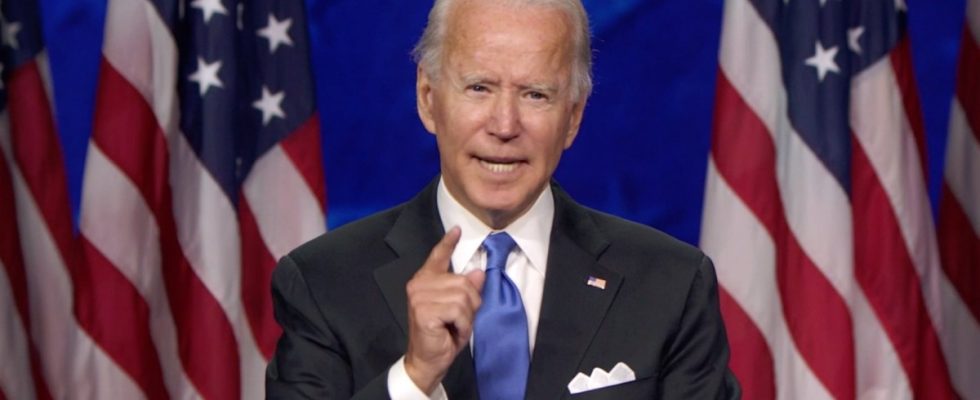US President Joe Biden has described China’s economic woes as a “ticking time bomb” and Communist Party leaders as “bad people”. His government had actually tried to improve relations with Beijing overall. At a political fundraiser on Thursday, Biden said China was in “trouble” because the country’s growth had slowed and it had the “highest unemployment rate ever.” He also described President Xi Jinping’s “Belt and Road Initiative” as a “debt and rope” program because the global investment program is linked to large amounts of lending to developing countries. “China grew at 8 percent a year to sustain growth, now it’s just under 2 percent a year,” he told donors in Park City, Utah. “The country is in a situation where the number of people of retirement age is greater than the number of people of working age,” he added. A statement that is not only wrong, but also wrong by hundreds of millions of people.
Biden’s comments are among the most direct criticisms he has leveled at the US’s key geopolitical and economic rivals. The president has in the past attempted to use trade restrictions to slow China’s high-tech military advances while seeking a diplomatic rapprochement with the Chinese leadership that could pave the way for a possible meeting with Xi. Xi is expected in the US in November to attend the APEC summit. It’s still unclear if that will happen, especially after reports the White House plans to bar sanctioned Hong Kong Prime Minister John Lee from the meeting of the 21 Asia-Pacific economies.
Back in June, Binden compared Xi to a “dictator”
It is not the first time that Biden has made thoughtless statements that threaten to undermine his administration’s efforts to stabilize relations. In June, just a day after US Secretary of State Antony Blinken completed a trip to Beijing to ease tensions, Biden likened Xi to a “dictator” and questioned the Chinese leader’s control over his country and military. It’s unclear how Beijing will react to Biden’s recent remarks. China was largely unperturbed by the reference to Xi as a dictator, and weeks later received US Treasury Secretary Janet Yellen and US climate chief John Kerry on separate trips. Commerce Secretary Gina Raimondo, who is due to visit China this month, on Thursday described an agreement by China to lift restrictions on group travel to the US as a win for engagement between the world’s two largest economies.
But Biden’s digs at China’s $18 trillion economy come at a particularly sensitive time for Xi. Although Biden misrepresented key statistics on China, the overall outlook for China remains bleak. China’s gross domestic product grew slower-than-expected at 5.5 percent in the first half of the year, raising concerns about the impact on the global economy. China slipped into deflation in July and is struggling with falling exports, high youth unemployment and a plummeting real estate market amid a debt crisis at Country Garden Holding. The company, which was once the country’s largest private property developer in terms of sales, is at risk of bankruptcy given the industry’s liquidity squeeze.
Youth unemployment in China has reached a record high
The Xi government had recently tried to silence negative economic news. For example, economists are not allowed to use the word “deflation” when referring to price pressures. Discussions on issues such as private sector reform have been deleted from social media platforms. Authorities also this week ordered internet companies to take swift action against defamatory comments targeting companies online. At the same time, Biden’s remarks contained factual inaccuracies and exaggerated some of China’s problems.
According to a July Bloomberg survey of economists, China’s economy will grow 5.2 percent this year, even after weak consumption and a slump in the real estate market. In comparison, growth of 1.6 percent is forecast for the US economy this year, according to economic experts. Although China’s annual economic growth of over 10 percent has slowed significantly in the 2000s, authorities have said they want to pursue “high-quality” development, shifting away from an infrastructure- and property-dependent growth model. That has weighed on near-term growth but could mean more sustainable development. China’s official urban unemployment rate has been 5.2 percent in recent months, compared with the euro-zone unemployment rate of 6.4 percent in June. However, youth unemployment in China has reached a record high of over 20 percent.

